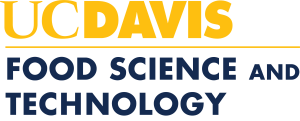A. Specific Learning Outcomes. Students will be able to:
- Recognize the major components of a food in terms of water, protein, lipids, carbohydrates and recognize their nutritional importance
- Identify how foods are viewed socially and culturally and identify several instances of food folklore associated with foods
- Discuss the major health food movements of the 20th and 21st centuries
- Identify the major governmental agencies involved in food regulation and monitoring food in the United States.
- Discuss current trends in obesity in the United States
- Recognize and describe general botanical differences between fruits and vegetables and herbs and spices
- Describe and distinguish examples of natural toxins in foods of plant origin
- Describe and distinguish examples of toxicants resulting from food processing
- Describe and distinguish examples of food additives, dyes, and processing aides and recognize contemporary concerns regarding their use
- Describe and distinguish differences in green tea, Oolong tea, black tea, coffee and soda and the role of sensory perception
- Recognize and discuss sugars; natural and synthetic and their use in foods
- Recognize and discuss lipids; their source and use in foods
- Recognize and discuss proteins, essential amino acids and enzymes in foods
- Describe and distinguish between food-borne infections and intoxications in foods
- Describe fermentation and the role of pH, water activity and temperature in food preservation
- Recognize and describe various fresh and processed dairy foods and describe how various cheeses are made
How this course addresses IFT Core Competencies:
FST10 is a 3-unit general education course for students in Science and Engineering, Social Science, Science Lit, Visual Lit, and World Culture. This course is offered every quarter. FST10 introduces basic concepts relating to food chemistry, food safety and food processing and engineering and meets IFT core competencies in the Food Chemistry, Food Safety and Microbiology, and Food Processing sections.
B. Tools used to assess program outcomes
Bloom’s levels I-III.
This course develops introductory-level understanding of food science concepts. Assessment includes classroom participation, three mid-term exams and a final exam to test general knowledge.
C. Brief summary of assessment results to date.
FST10 is a general education course that is developed to provide introductory-level knowledge of modern day foods and their properties. Ancient and modern food folklore is examined using modern science, as related to health and well-being. The course is taught entirely from slides that are also posted on a web page.
- This is a very popular course on campus, with average course enrollment over 500 students. Each year students are asked to complete a course evaluation form for the course. The numerical scores using a scale of 1 (strongly disagree) to 5 (strongly agree) for specific questions as well as verbal comments are compiled. The course and the instructor are evaluated separately. Students are asked to submit their own feedback on the course with suggestions for course and instructor improvement. These students’ assessments are studied carefully and new strategies are developed to deliver the course content in a more effective manner and to continue to improve and focus learning outcomes. Based on feedback, PowerPoint lectures are now made available on-line on the course web site and TAs are available at staggered times throughout the week to accommodate student scheduling.
- Student evaluations are consistently positive and at this time there are no plans to modify the course curriculum.
